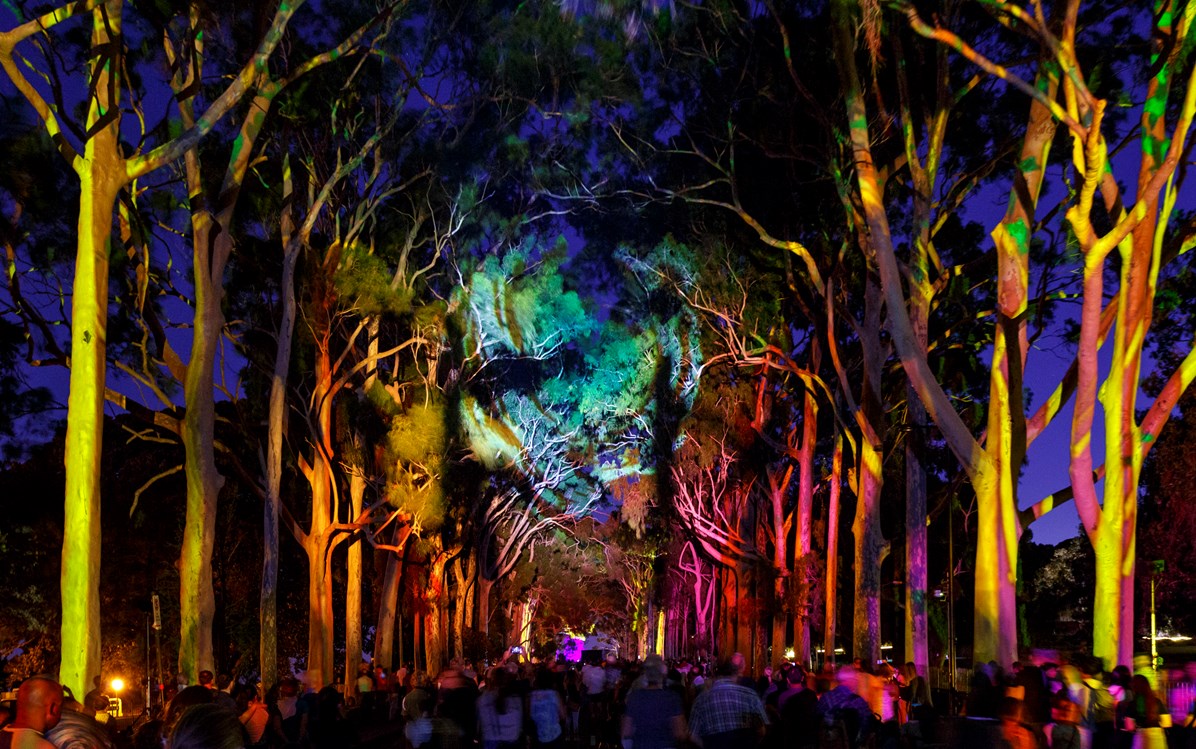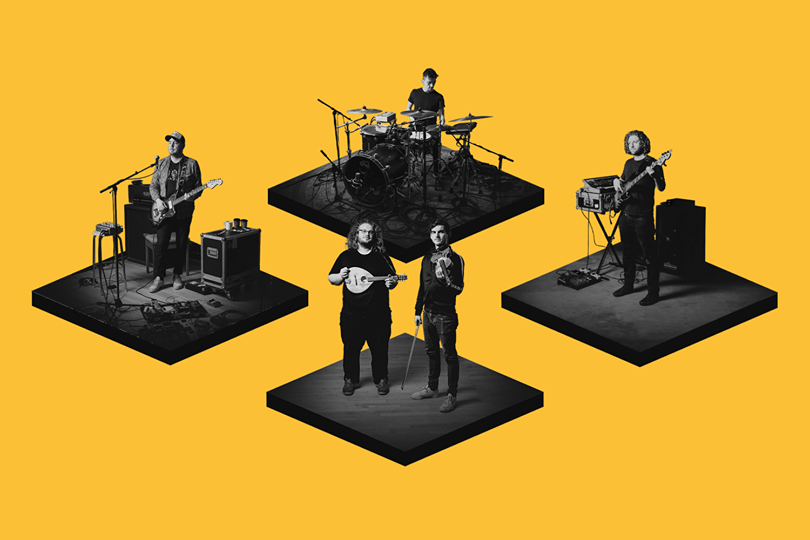Cancellations, creativity and community: How Australia’s music and arts festivals are weathering the pandemic storm

As 2021 rattles on, the sense of uncertainty – and in many cases, unfairness – is still gripping the festival sector. While large sporting events proceed, many festivals have once again had to pull the pin or scramble to find ways to make it through to next year. Here, The Music Network dissects the approaches of some local festivals, and the economic impacts they could be having on the community.
Last year, when the pandemic hit, Australian festivals might have numbly turned off the amps, but organisers were still devising options to stay connected and set things in motion for 2021.
This year has proven to be just as unpredictable, but promoters are displaying a mindset that is more flexible in the short term, while figuring out if introducing vaccines could change patrons’ attitudes in the long-term.
Here is how eight festivals have adopted different approaches.
After WA’s sudden five-day lockdown, Perth Festival pushed its entire 2021 program back by two weeks. This would give it time to work through and reschedule 140 productions over 23 days – including two sold-out Tim Minchin shows in Kings Park – rather than play catch-up on the run. The festival will now open on Monday, February 15 and wind up on Sunday, March 14.
Festival artistic director Iain Grandage said: “As we ready ourselves to celebrate our artists and welcome our audiences, we appreciate being able to do so in such challenging times.
“Festivals exist to bring people together and … we are seeking to shine a little joy in these unsettling and difficult times. We’ll do everything we can to succeed.”
Number crunching: In 2019, the festival’s total attendance was 454,986 for free and ticketed events, with box office income at $5.4 million from 147,355 tickets sold. The direct economic impact was $19 million, providing flow-on economic value to WA of $26.4 million and generating 581 full-time equivalent jobs.
Regional festival Groovin’ The Moo last week postponed for a second year, with Steve Halpin of Cattleyard Promotions saying: “We know it’s a big ask, but if you’re able to hold on to your ticket a bit longer, it will really help us in welcoming GTM back next year.”
In the meantime, Cattleyard set up a smaller event series. Dubbed Fresh Produce, the eight regional concert events from August to October will be “a limited capacity show that has been purposefully created to exist within the ever-changing environment” and is partially funded by the RISE grant initiative.
Number crunching: In 2019, GTM’s six shows around the country drew between 15,000 to 25,000 punters each. The University of Canberra estimated the Canberra show yielded $3 million in economic return.
The Adelaide Fringe’s artistic director Heather Croall explained 2021 COVID-Safe initiatives included “more outdoor spaces activated and many events offering online experiences”. The website introduced “some great new features allowing audiences to browse by the local area and event type to see what they can watch from home and go see nearby to home”.
With all 800 shows at 50% capacity, a Double Your Applause ticket was introduced where an audience member could buy the empty seat next to them, to offset the halving of artist profits.
Number crunching: The festival reported a record 853,419 tickets in 2020 (COVID-19 hit in the festival’s last week) to the tune of $21 million. Economic injection to the South Australian economy reached an all-time high of $96.7 million.
When Port Fairy Folk Festival cancelled its 2021 instalment, it quickly announced a return in 2022 between March 11-14. Initially, the organisers had thought of a smaller festival, but figured it would be too hard.
Rather than the usual town-wide celebration, they put together a run of concerts from March 5-8 at the Reardon Theatre with names such as Mick Thomas’ Roving Commission, Keep the Circle Unbroken, Kutcha Edwards, Kee’ahn and Nigel Wearne.
Number crunching: Past studies showed that of the 12,000 who attend the festival (and 20,000 for other events thrown by the town), 90% came to the region specifically, and bring in $9.6 million to the Port Fairy economy.
Fringe World Perth, which restarted last Friday (February 5), moved quickly when WA restrictions put its 500 shows at 50% capacity, meaning that some shows at the main Woodside Pleasure Garden in Northbridge and Girls School in East Perth were over-sold.
The new rules were ‘first come first served’. The sites were segmented into individual sections based on venue locations, food and beverage offerings to meet the 4sqm restriction, with their own entrances and exits.
Two weeks of unexpected restrictions after the festival began meant 26,000 tickets were cancelled or refunded, slashing artist earnings. A donation fund was set up on its website, which reached $60,000 by February 5.
Fringe World is also considering an ‘encore season’ of performances for artists to increase their earnings, and currently discussing options with WA Health.
Number crunching: Fringe World’s 2020 impact report showed attendance at ticketed and non-ticketed events topped 820,000. Box office payments to artists and associations totalled $9.4 million. Economic impact was $100.6 million; for every $1 invested by the WA Government into Fringe World, $68 was stimulated. It created 2,214 FTE jobs as a result.
 Together Alone
Together Alone
In the meantime, three major festivals have also announced their return in 2021.
Tasmania’s Basin Concert, which at its peak was drawing 10,000 people, makes a reappearance after a five-year hiatus, staged by Vibestown Productions over two days in late March at Launceston’s Cataract Gorge. Acts include Ball Park Music, Spacey Jane, Holy Holy and Kasey Chambers, with capacity capped at 3,000 on each day.
Brunswick Music Festival in Melbourne, for which the opening street party alone drew 60,000 in the past, returns to the funky suburb’s parks, music venues, bars and pizza parlours in a shorter period of March 5-14.
Among the curators are Crown Ruler with Waving at Trains, Milk! Records, Our Golden Friend, Bad Apples, Flightless Records, HopeStreet Recordings with College of Knowledge, Mistletone Records and Port Fairy Folk Festival. To get live music back on the streets in Melbourne, Moreland City Council is paying artist fees and capping all tickets at $10. Its full COVID-19 safety guide is unveiled closer to the date.
After a hiatus in 2020, Garma is staged on July 30–August 2 in northeast Arnhem Land, NT, courtesy of the Yothu Yindi Foundation. It normally has 3,000 patrons from all across the country. To keep crowds down, chief executive Denise Bowden said Garma would cap ticket sales, reduce accommodation capacity and possibly have some events run online to keep it COVID-Safe.






























